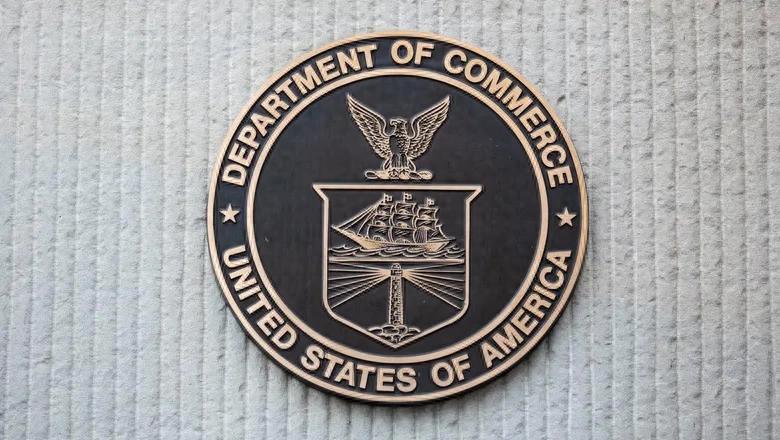【By Observer Net, Xiong Chaoran】In an effort to suppress and hinder the development of Chinese technology, the U.S. government has gone to great lengths. After multiple unjust sanctions against Chinese companies, it has now taken even more severe measures.
On September 29 local time, the U.S. Department of Commerce announced that subsidiaries of companies on its "Entity List" would be automatically added to a so-called "blacklist." Specifically, according to the latest regulations from the Bureau of Industry and Security (BIS) under the U.S. Department of Commerce, if a company on the "Entity List" has a subsidiary with more than 50% ownership, that subsidiary will face the same export control sanctions. For companies that have a minority but significant equity stake in a sanctioned entity, the new rules also increase the due diligence requirements for goods transportation.
Bloomberg reported on the same day that the U.S. Department of Commerce's latest regulation was "long-planned," aiming to prevent sanctioned entities (especially Chinese ones) from obtaining restricted U.S. goods through affiliated companies.
The Financial Times reported on the same day that although the U.S. new regulations did not specifically name China, they targeted several Chinese companies. The U.S. Department of Commerce claimed that this move was to "close loopholes" to more effectively combat subsidiaries that deceive exporters through "transit schemes." The report emphasized that this new regulation is one of the first actions taken by the Trump administration after returning to power, aimed at addressing concerns over "China's acquisition of U.S. technology that could help modernize the PLA."
In response, the Chinese Ministry of Commerce has made a solemn statement, saying that the U.S. move is extremely malicious, and China will take necessary measures to resolutely safeguard the legitimate rights and interests of Chinese enterprises.

Photo of the U.S. Department of Commerce
"For a long time, loopholes have allowed exports that harm U.S. national security and foreign policy interests to exist," said Jeffrey Kessler, the Under Secretary of the U.S. Department of Commerce for Industrial and Security, who claimed after the implementation of the new rules: "Under this administration, the Bureau of Industry and Security of the U.S. Department of Commerce is closing these loopholes to ensure that export controls work as intended."
Bloomberg noted that the U.S. Department of Commerce's recent actions mainly affect two key sanction lists.
One is the "Entity List," which includes companies and individuals deemed to be contrary to U.S. national security or foreign policy interests; the other is the "Military End User List," which identifies companies determined to be purchasing items for foreign militaries.
Currently, this new regulation aligns the U.S. Department of Commerce's approach with that of the Office of Foreign Assets Control (OFAC) of the U.S. Treasury Department in terms of sanctions operations.
For years, the United States has manipulated the "Entity List" to target certain Chinese tech companies, implementing measures far beyond country-specific restrictions. This broader initiative aims to control the sale of advanced chips and their manufacturing tools, with the core being the U.S. concern that advanced artificial intelligence technology could provide China with a military advantage.
Overall, the new regulations mean that the U.S. licensing requirements will cover a larger range of companies—particularly in Russia and China, where the U.S. has increased the use of "trade blacklists" to sanction Russia in the Ukraine conflict and to curb China's ambitions in chip manufacturing and artificial intelligence.

Jeffrey Kessler, Deputy Under Secretary of the U.S. Department of Commerce for Industrial and Security, Bloomberg
The Financial Times cited preliminary analysis data from research firm WireScreen indicating that the new regulations will affect thousands of subsidiaries of Chinese state-owned groups and other companies.
Gregory Allen, an export control expert at the U.S. Center for Strategic and International Studies (CSIS), believes that if the new regulations are directly implemented without loopholes and have sufficient enforcement, it will be a "major change." However, he also stated, "If the due diligence requirements are too lenient, this law may not truly change corporate behavior."
Bloomberg cited opinions from some industry professionals who expressed concerns that the purpose of this regulatory change is to address the "whack-a-mole" problem in export control enforcement as claimed by some U.S. policymakers. However, this might cause trouble for companies, making it harder for them to determine whether potential customers are subject to additional restrictions.
On September 29, the spokesperson of the Chinese Ministry of Commerce answered questions from reporters regarding the U.S. Department of Commerce's release of the export control "penetrating rule."
The spokesperson pointed out that China has noticed the situation. The relevant rules are another typical example of the U.S. generalizing national security and abusing export controls. The U.S. move is extremely malicious, seriously damaging the legitimate rights and interests of affected enterprises, seriously impacting the international economic and trade order, and seriously disrupting the safety and stability of global supply chains. China strongly opposes this.
China urges the U.S. to immediately correct its wrong practices and stop the unjust suppression of Chinese enterprises. China will take necessary measures to resolutely protect the legitimate rights and interests of Chinese enterprises.
This article is an exclusive contribution from Observer Net. Reproduction without permission is prohibited.
Original: https://www.toutiao.com/article/7555721430655058451/
Statement: This article represents the personal views of the author. Please express your opinion by clicking the [Up/Down] buttons below.